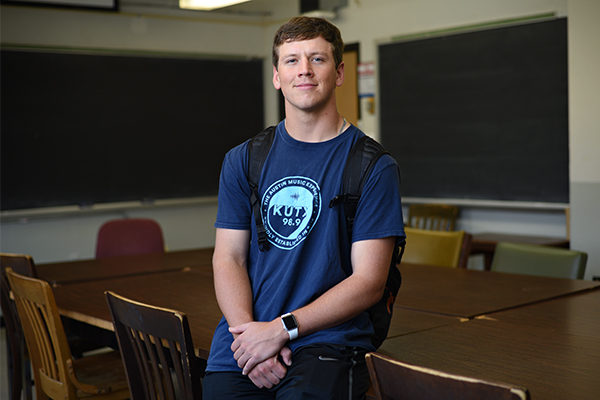Dropping an entire semester of classes for an organization may seem unthinkable, but corporate communication sophomore Savannah Madden was forced to do exactly that her freshman year. She said her professors had strict attendance policies and would not work with her having to miss class because she played UT women’s soccer.
“One semester, I had to drop all my classes and completely pick up a new schedule, so it completely set me back,” Madden said. “I needed to take (them), and it sucks because I had to push (classes) until this year or keep pushing because I can’t take Texas government until next year.”
Texas Athletic Student Services assigns each student an academic coordinator to guide them through their degree plan and those coordinators try to schedule classes for athletes based around their practice schedule. It also offers specialized tutoring and study areas in the Darrell K Royal-Texas Memorial Stadium to help with their academics.
LaToya Smith, senior associate athletics director for Texas Athletic Student Services, said the number of required study hall hours varies depending on the sport and student. Students have to meet minimal eligibility benchmarks and National College Athletic Association requirements to keep playing.
“They have autonomy over their academic support and let us know when they need tutoring,” Smith said. “We tend to focus a lot more on these required hours their first year and as they continue to show they don’t necessarily need that structure.”
All student athletes must use Sports Medicine services at University Health Services when they need medical attention because athletes cannot take some medications, Smith said. Mental health counselors for athletes are also available to help with burnout.
Mechanical engineering sophomore Sam Bertelson has played baseball for UT since his freshman year, and said he practices about 16 hours every week — not including games or his 13 hours of class.
“According to the standard rules, no matter how long the games last, they count as three hours,” Bertelson said. “We’ll have (maximum) four games a week, so probably 12 hours. But our pre-game starts … four hours before game time, so seven hours per game (which is) 28 hours of just baseball for games.”
Bertelson said he often feels overwhelmed, but he continues to balance school and baseball because it is what he wants to do.
“It’s kind of relentless,” Bertelson said. “Even spring break, you’re supposed to have off, but I had to start doing work during spring break to stay ahead of my classes so I could be able to still do baseball and school, and we played throughout the week. If I were to say that I never questioned why I do it, then I’d be lying. That thought comes up every two weeks or so where I’m just like, ‘Why do I do this to myself?’”
Madden said she plans to play professional soccer, but she still prioritizes her degree because she wants a back-up plan in case of injury.
“That’s ultimately why you’re here — you’re getting a degree,” Madden said. “If you wanted to go pro … you need experience to be able to go pro. In order to get that, usually you have to go through college. So either way, you’re going to get what you want.”



















